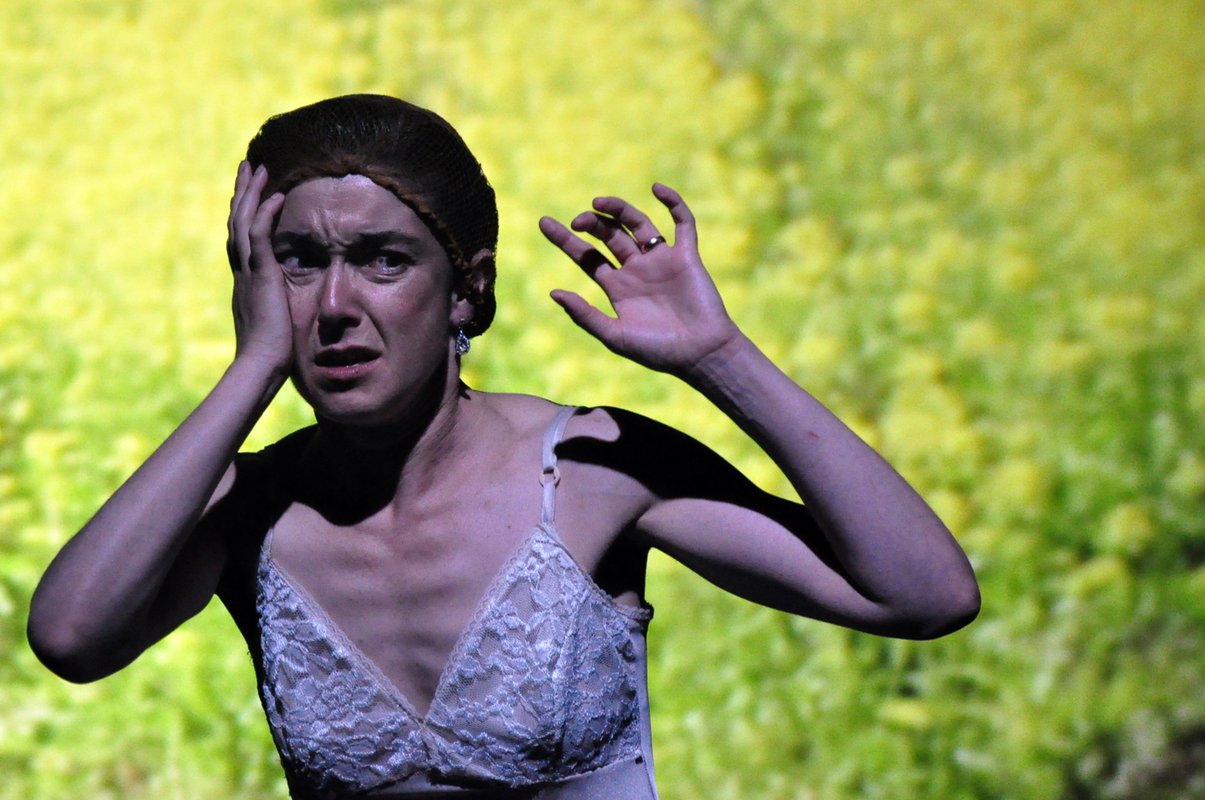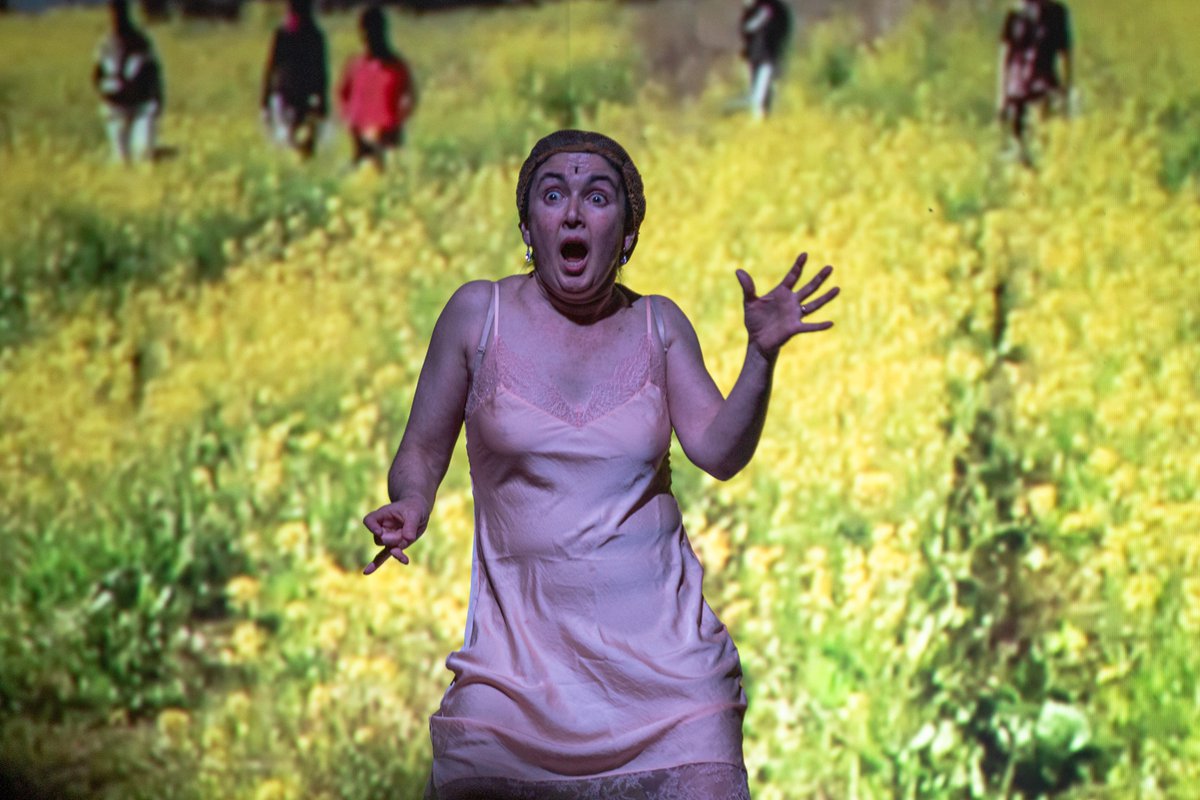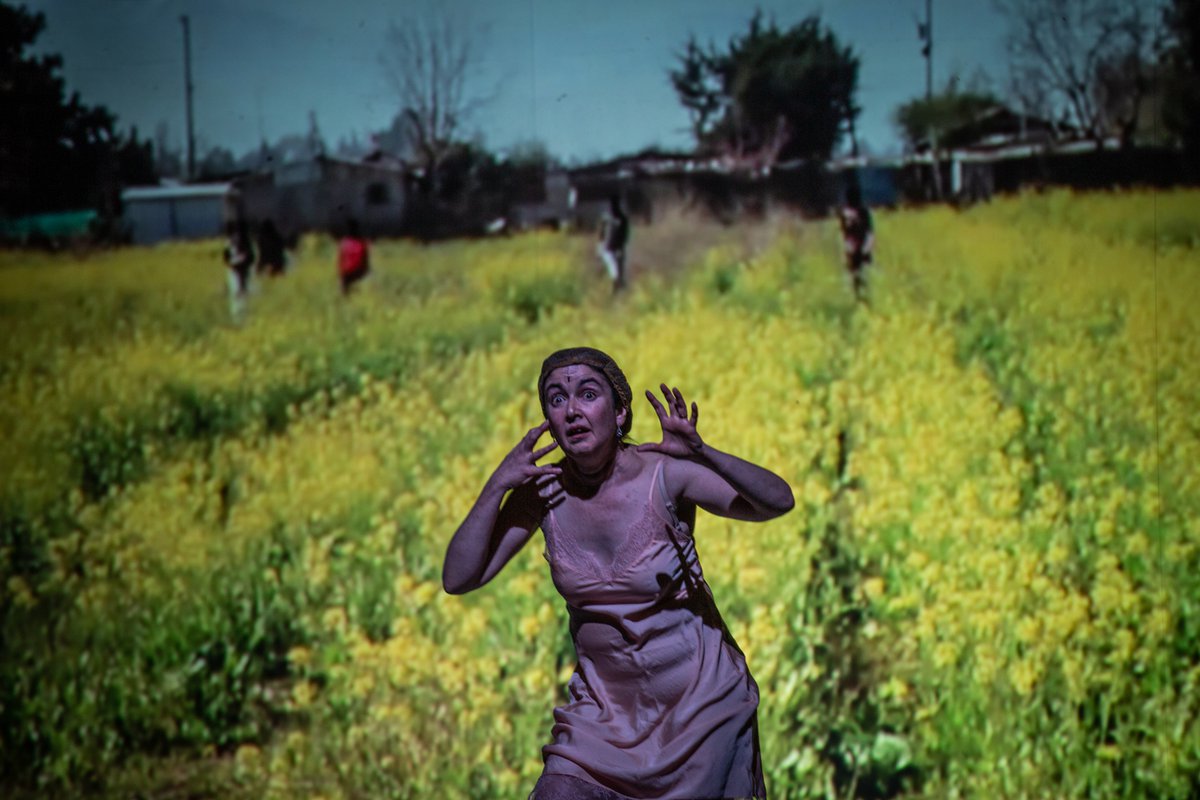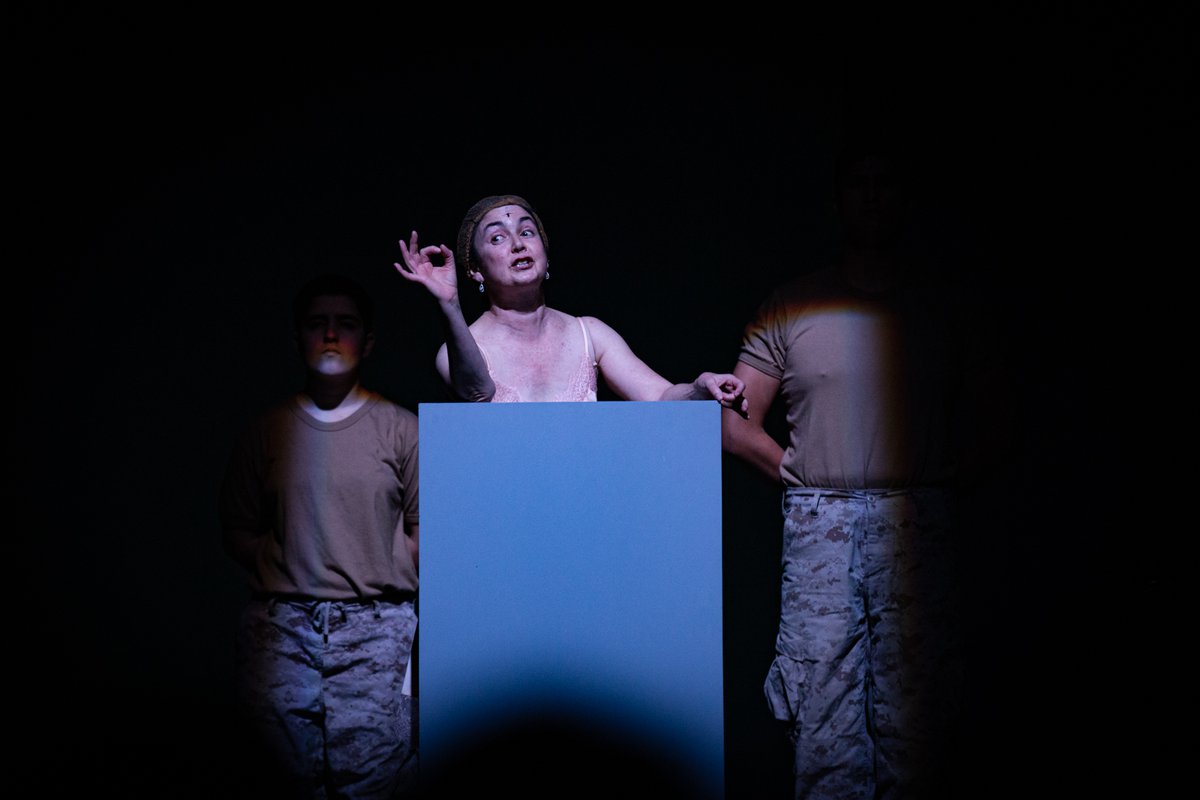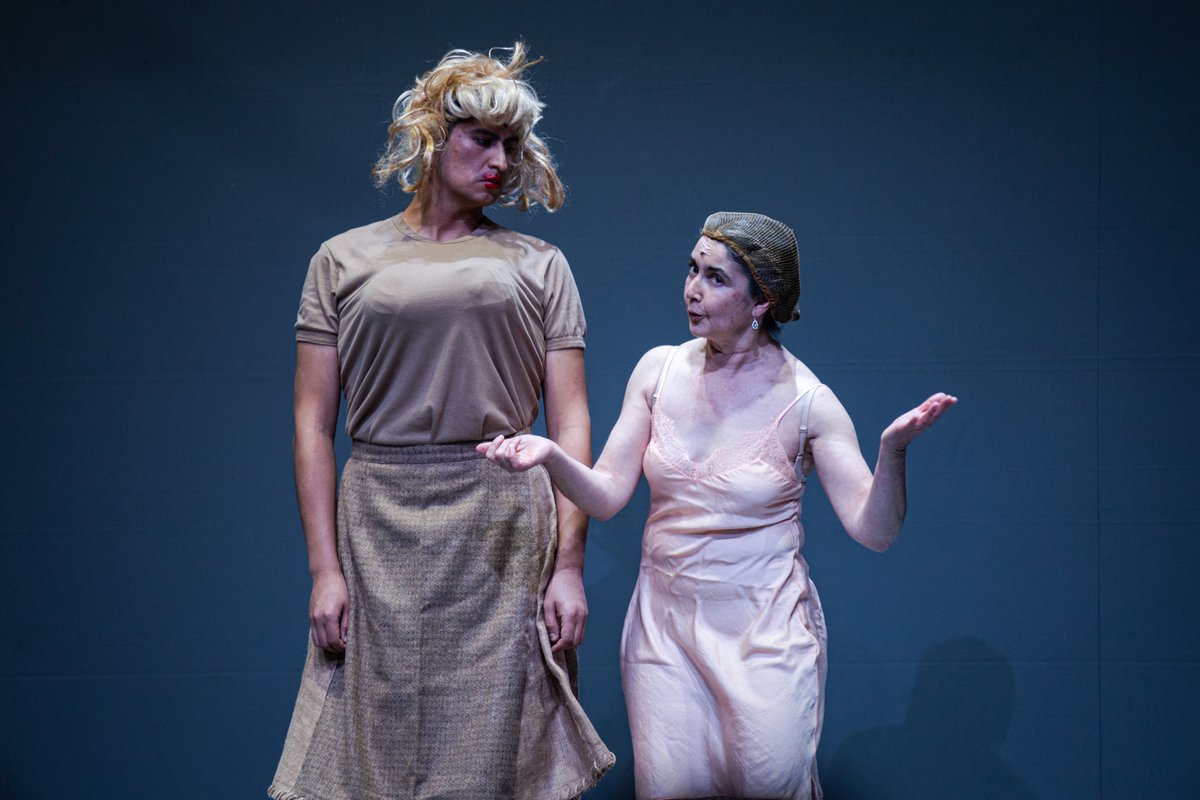Teatro
Written by: Alejandro Moreno | Directed by: Víctor Carrasco | Assistant director: Andrés Reyes | Cast: Paulina Urrutia, Juan Pablo Rahal, Horacio Valdés |Art and lighting director: Fernando Milagros | Audiovisual images: Rodrigo Susarte | Audiovisual producer: Javier Estévez | Assistant audiovisual director: Casandra Campos | Music: Álvaro Solar | Wardrobe: Loreto Martínez | Set creation: Ingrid Hernández | ADR and sound mixing Cristián Freund | Sound post-production: Zoo Films | Produced by: Barbara Nash, Loreto Araya | 2010 premiere produced by the Chilean Playwriting Event - Teatro de la Palabra | 2021 version coproduced by FITAM-Teatro de la Palabra.
Synopsis (English)
The director
Víctor Carrasco has been directing plays since 1990, including De noche justo antes de los bosques, En la soledad de los campos de Algodón, Tabataba, La Herencia and Roberto Zucco by Bernard-Marie Koltès; Alguien va a venir, El hijo and Variaciones sobre la muerte by Jon Fosse; Norte and La amante fascista by Alejandro Moreno; Hedda Gabler by Ibsen; Three Sisters by Chekhov; Bailando para ojos muertos by Juan Radrigán; Constelaciones by Nick Payne; La voz humana by Jean Cocteau and Los Arrepentidos and Mentes Salvajes by Marcus Lindeen.
Víctor Carrasco
Alejandro Moreno
Playwright
Alejandro Moreno graduated in Arts from the University of Chile and has a Masters in Hispanic Philology from the Spanish Language Institute in Madrid, a Masters in Creative Writing from the University of New York and is currently a PhD. student at the Department of Spanish and Portuguese Literature and Language at the University of New York. He has participated in international playwriting residencies at the Royal Court Theater in London and at the Casa de América in Madrid. He has written more than 15 theater plays, including La amante fascista, Gastos de representación, Norte, La mujer gallina and Berlín no es tuyo. His scripts have been translated into English, French and Portuguese. He lives and works in New York.
Paulina Urrutia
“When you see La amante fascista, you know that you’re witnessing a unique and unrepeatable artistic event”.
Marco Antonio de la Parra, La Nación, November 21, 2010.
“La Amante Fascista is one of the most inspiring premieres of the season”.
Juan Andrés Piña, La Tercera, November 12, 2010.
“Best Actress 2010: Paulina Urrutia for La Amante Fascista ... Urrutia once again demonstrates - and personifies - her talent … with a discourse that delves into political correctness and confirms how much we’ve missed her on the local stage”.
Eduardo Miranda and Pedro Labra, El Mercurio, December 24, 2010.
“La amante fascista is a play that destroys the myths surrounding our country’s recent history, from the perspective of a writer born in the Atacama Desert who writes at home in New York for a group of artists who live and work in Santiago de Chile. It is this variety of textures, this crossover between points of view, that encouraged me as a director to bring this cruel, ironic, sarcastic and painful script to the stage. It reflect on the fanaticism of a woman who, like many Chileans, supported and justified the atrocities committed during the military dictatorship. What could have been a critique of a specific time in our history is really just an excuse to talk about Chile and Chileans. Intolerance, classism and xenophobia are some of the idiosyncrasies that filter through in phrases that are both poetic and constructed interestingly in theatrical terms. There is also the flawless work of actress Paulina Urrutia, who I’ve had the privilege of working with before and whose performance adds a depth to the character that I could only imagine the first time I read La amante fascista almost a year ago”. Víctor Carrasco, director.


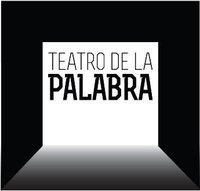


La amante fascista
By: Alejandro Moreno | Directed by Víctor Carrasco
- Chile
- Spanish
- + 14 years
The wife of a captain in the Chilean army waits for him to return home and, as a result, we are taken back to some of the darkest nights the country has lived through.
Iris Rojas is the wife of a Chilean army captain who is out of the country. She waits for her husband to come home to Chile to carry out official visits to ceremonies and inaugurations in the northern city where he lives. In the middle of the night though, due to the anxiety caused by the preparations, she realizes that the Chilean army volunteer uniform she will wear for the official event she will accompany him to is completely soaked and will not be dry in time. This tiny domestic problem keeps her awake all night with an insomnia that will take us back to some the darkest nights the country has lived through.

Written by: Alejandro Moreno | Directed by: Víctor Carrasco | Assistant director: Andrés Reyes | Cast: Paulina Urrutia, Juan Pablo Rahal, Horacio Valdés |Art and lighting director: Fernando Milagros | Audiovisual images: Rodrigo Susarte | Audiovisual producer: Javier Estévez | Assistant audiovisual director: Casandra Campos | Music: Álvaro Solar | Wardrobe: Loreto Martínez | Set creation: Ingrid Hernández | ADR and sound mixing Cristián Freund | Sound post-production: Zoo Films | Produced by: Barbara Nash, Loreto Araya | 2010 premiere produced by the Chilean Playwriting Event - Teatro de la Palabra | 2021 version coproduced by FITAM-Teatro de la Palabra.
Synopsis (English)
The director
Víctor Carrasco has been directing plays since 1990, including De noche justo antes de los bosques, En la soledad de los campos de Algodón, Tabataba, La Herencia and Roberto Zucco by Bernard-Marie Koltès; Alguien va a venir, El hijo and Variaciones sobre la muerte by Jon Fosse; Norte and La amante fascista by Alejandro Moreno; Hedda Gabler by Ibsen; Three Sisters by Chekhov; Bailando para ojos muertos by Juan Radrigán; Constelaciones by Nick Payne; La voz humana by Jean Cocteau and Los Arrepentidos and Mentes Salvajes by Marcus Lindeen.
Víctor Carrasco
Alejandro Moreno
Playwright
Alejandro Moreno graduated in Arts from the University of Chile and has a Masters in Hispanic Philology from the Spanish Language Institute in Madrid, a Masters in Creative Writing from the University of New York and is currently a PhD. student at the Department of Spanish and Portuguese Literature and Language at the University of New York. He has participated in international playwriting residencies at the Royal Court Theater in London and at the Casa de América in Madrid. He has written more than 15 theater plays, including La amante fascista, Gastos de representación, Norte, La mujer gallina and Berlín no es tuyo. His scripts have been translated into English, French and Portuguese. He lives and works in New York.
Paulina Urrutia
“Cuando ves la pieza teatral “La amante fascista” sabes que estás en presencia de uno de esos hechos artísticos únicos e irrepetibles”.
Marco Antonio de la Parra, La Nación, 21 de noviembre del 2010.
“La Amante Fascista entrega uno de los estrenos más estimulantes de la temporada”.
Juan Andrés Piña, La Tercera, 12 de noviembre de 2010.
“Mejor Actriz año 2010: Paulina Urrutia por "La Amante Fascista"...Urrutia volvió a demostrar -y enrostrar- su talento...con un discurso que se sumerge en lo políticamente incorrecto, logró confirmar cuánto se la extrañaba en la escena local”...
Eduardo Miranda y Pedro Labra, El Mercurio, 24 de Diciembre de 2010.
“Magnífica actriz, Paulina Urrutia compone una Iris plagada de matices; pasa de la comedia al drama con tal ductilidad y llega a ser desopilante, por momentos, mientras sus dichos no hacen más que agudizar su profundo desprecio por los valores democráticos”.
Carlos Pacheco, La Nación de Argentina, 2011.
“La amante fascista” es una obra que desmitifica la historia reciente de nuestro país desde la mirada de un autor nacido en el desierto de Atacama, que escribe en su casa de Nueva York para un grupo de artistas que viven y trabajan en Santiago de Chile. Son estas texturas tan distintas, esa cruza de puntos de vista lo que me movilizó como director a escenificar este texto cruel, irónico, sarcástico y doloroso que reflexiona sobre el fanatismo de una mujer, que como muchos chilenos, apoyaron y justificaron las atrocidades cometidas por la dictadura militar. Pero lo que podría ser la denuncia de un período particular de nuestra historia es sólo una excusa para hablar de Chile y los chilenos. La intolerancia, el clasismo, la xenofobia son algunas de las características de nuestra idiosincrasia que se filtran entre frases con fuerte contenido poético e interesante construcción dramática. A todo lo anterior habría que sumar el impecable trabajo de la actriz Paulina Urrutia, con quien ya había tenido el privilegio de trabajar, y que con su entrega le da la profundidad que imaginé en la primera lectura de “La amante fascista” hace ya casi un año”.
Víctor Carrasco, director.
En Instagram, @chatopics, @teleteatro, @paulinaurrutia1
En Twitter, @TELETEATRO
PRESENTA

PRODUCE


COLABORA

